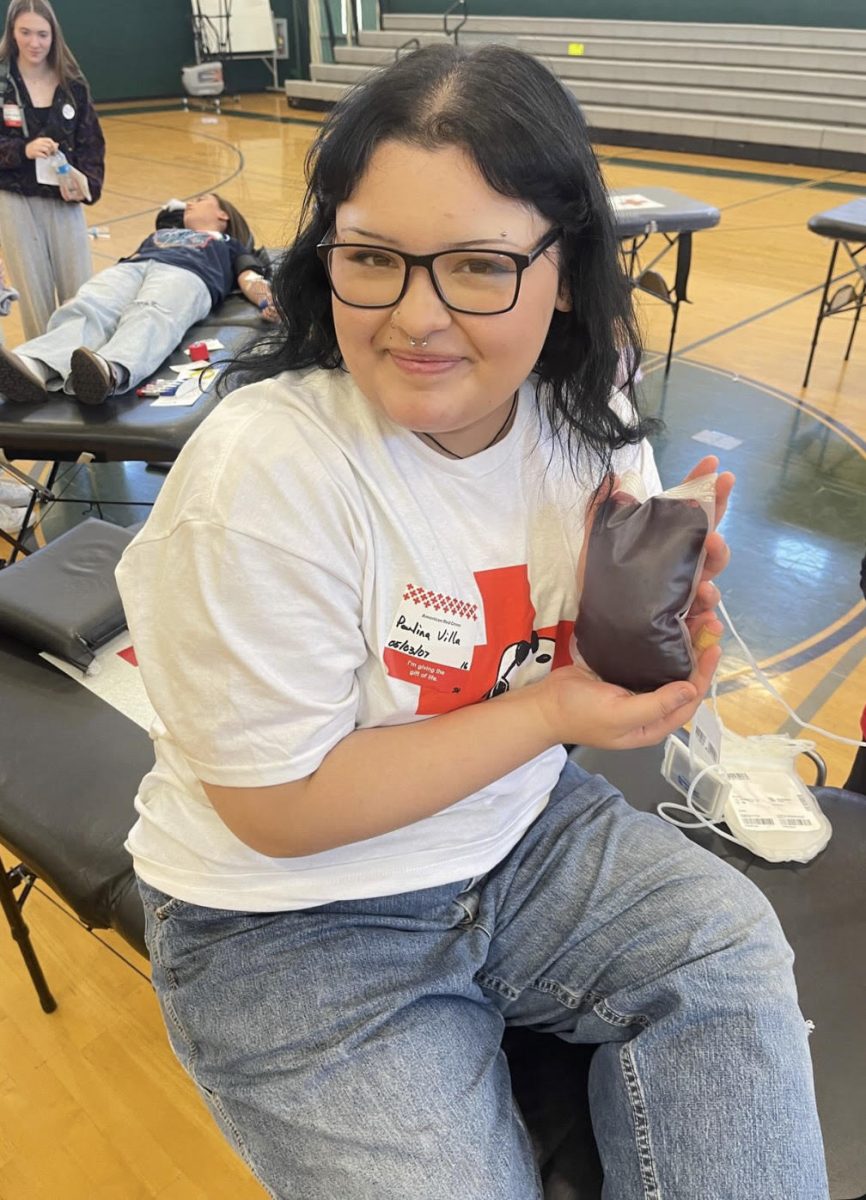Multiple Sclerosis affects 1.8 million people worldwide, with only 3% of the MS population developing symptoms before the age of 18. Paulina Villa, a Junior at Rex Putnam High School, is among this 3%. Diagnosed at 16 years old, Paulina has been trying to navigate through high school with this disease. Multiple Sclerosis (MS) impacts the brain, spinal cord, and the optic nerves that make up the central nervous system. This can result in nerve damage, and other debilitating symptoms. It’s an intense diagnosis to deal with, let alone when you’re a teenager.
Paulina started to experience tingling and numbness in her legs in April of 2023. Her parents took her to Doernbecher Hospital, where they told her the tingling and numbness was most likely a side effect of her antidepressant medication that she had just started to take a week prior. She visited the hospital a week later because her symptoms continued, and they told her the same things. Soon after, the numbing and tingling in her legs had gone away. She and her family assumed nothing more of it until the symptoms had returned. The numbing was so severe that she couldn’t walk. Her family called an ambulance that then took her to OHSU, where she stayed for multiple days. A spinal tap later revealed that she had Multiple Sclerosis.
Soon after the diagnosis, Paulina was given a treatment plan and medication to treat her MS, though there is no cure. Paulina will have to receive treatment around every six months. She says, “I felt depressed after my diagnosis. I wasn’t able to go to school and see my friends, which was hard. I used to have a lot of worries about it. I felt so isolated.” She stated that adjusting to her new life has been challenging, and she’s still learning. Her family and friends played an important role in helping her stay positive.
When asked what she would say to those also struggling with this disease, she said, “I advise those who struggle with this not to give up, and to lean into your support system whenever you need to.” It has been months since her diagnosis, and Paulina is feeling better mentally and physically and will continue to persevere. MS affects many in different ways, and it’s important to know you are not alone.For more information or support regarding Multiple Sclerosis, you can visit https://www.nationalmssociety.org/Resources-Support/Find-Support.

